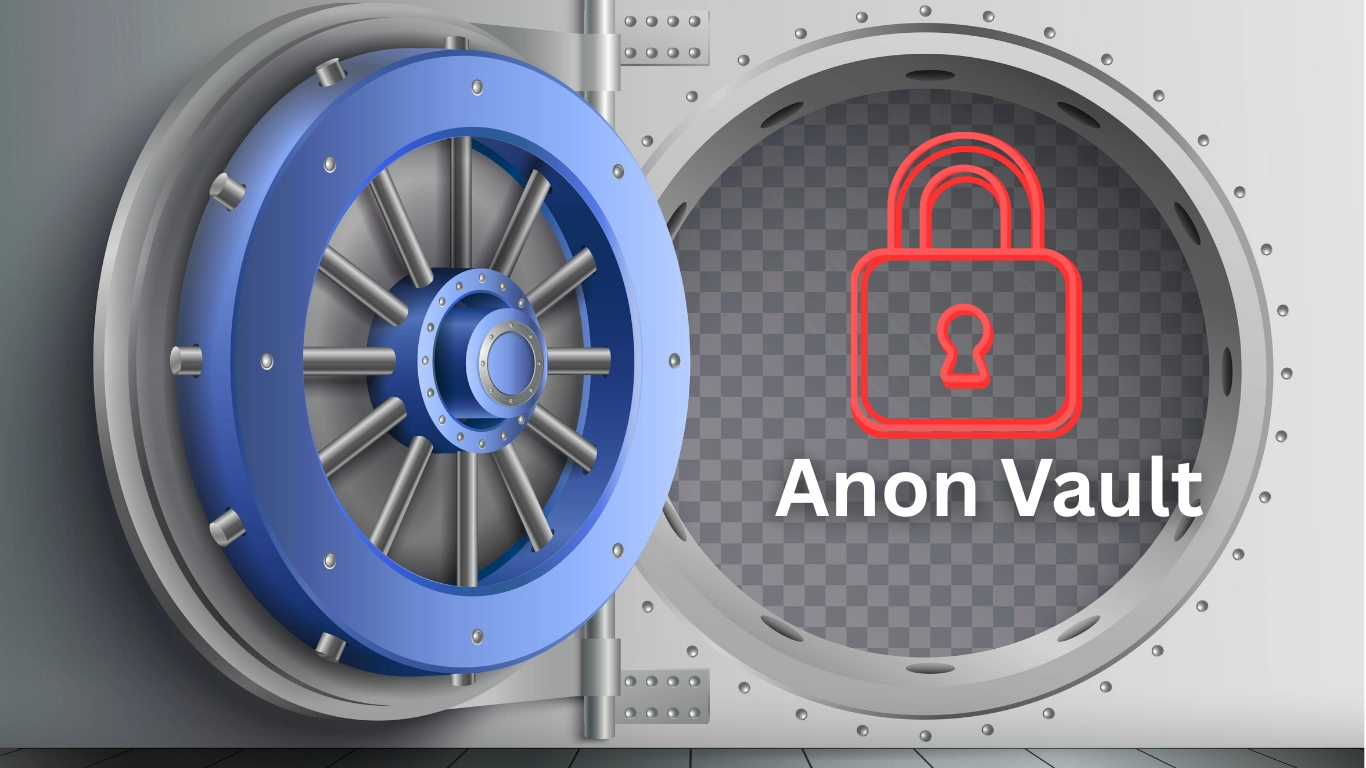In today’s digital world, privacy and data security are among the biggest concerns for individuals and organizations. Every click, download, or transaction leaves a trail that can be tracked, analyzed, and sometimes exploited. This has given rise to new technologies and platforms designed to ensure anonymity and protect digital information. One such concept is the Anon Vault, a secure system built for people who value privacy, confidentiality, and digital freedom.
The term Anon Vault combines two critical ideas:
- Anon (Anonymity): Protecting identity and online actions from surveillance or exposure.
- Vault: A highly secure repository for sensitive information, data, and digital assets.
In this guide, i am exploring the Anon Vault in detail—what it is, how it works, its importance in cybersecurity, use cases, risks, technologies involved, and its future role in protecting privacy online.
What is Anon Vault?
Anon Vault refers to a digital system, platform, or service designed to protect sensitive information while keeping the user anonymous. It may include encrypted storage, anonymous payment systems, private communication tools, and secure vault-like databases that ensure no unauthorized access.
Unlike regular cloud storage or traditional vaults, an Anon Vault prioritizes privacy-first architecture:
- Identity Protection: Users can store or access data without linking it to their personal identity.
- Encryption: Data is locked using advanced cryptographic methods.
- Accessibility: Only the rightful owner (or authorized party) can access the vault.
In short, an Anon Vault is a digital safe house for sensitive information.
Why the World Needs
Rising Privacy Concerns
From corporate data breaches to personal identity theft, digital security threats are growing rapidly. People now understand the importance of controlling their data.
Surveillance and Tracking
Governments, companies, and even malicious actors constantly monitor user activities. Anon Vaults provide a counterbalance by ensuring personal information remains private.
Cryptocurrency & Digital Assets
With the rise of cryptocurrencies, NFTs, and blockchain applications, the need for secure anonymous storage has skyrocketed. Anon Vaults serve as safe repositories for these assets.
Key Features
1. Strong Encryption
Anon Vaults use AES-256 or even quantum-resistant encryption algorithms to secure files, communications, and digital assets. Anon Vault systems use strong encryption, ensuring that only the owner can access stored data. Even if intercepted, the information remains unreadable.
2. Decentralization
Some vaults operate on blockchain technology, ensuring no single authority can control or censor them. Some versions of Anon Vault operate using decentralized storage systems powered by blockchain technology, which makes data harder to censor or remove.
3. Multi-Factor Authentication (MFA)
Extra layers of security prevent unauthorized access, even if passwords are compromised. Advanced authentication methods such as anonymous logins, token-based keys, and encrypted wallets provide extra layers of security.
4. Anonymous Access
Vaults are often designed so users don’t need to provide identifiable details, making it harder to link stored data to real-world identities.
5. Secure Backup
Redundant storage ensures that even if servers fail, data remains safe and retrievable.
Types of Anon Vaults
Digital File Vaults
Designed for storing documents, images, and sensitive data securely.
Crypto & Financial Vaults
Used to store digital currencies like Bitcoin, Ethereum, and NFTs without revealing personal details.
Communication Vaults
Platforms that offer encrypted and anonymous messaging.
Enterprise Anon Vaults
Built for organizations needing secure and anonymous storage of trade secrets, intellectual property, and financial data.
How Anon Vaults Work
Step 1: Encryption
When a user uploads data, it is encrypted locally before it even reaches the server.
Step 2: Secure Transmission
The data travels through encrypted channels (TLS/SSL or blockchain systems).
Step 3: Anonymous Authentication
Users may log in through cryptographic keys instead of usernames and passwords.
Step 4: Decentralized Storage
In blockchain-based vaults, the data is distributed across nodes rather than centralized servers.
Step 5: Access Control
Only the private key holder or authorized device can decrypt and access the data.
Use Cases of Anon Vaults
Personal Privacy
- Protect personal photos, documents, or IDs.
- Keep browsing history and personal communications safe.
Business Security
- Store confidential contracts, financial records, and employee data.
- Protect intellectual property from competitors.
Cryptocurrency Management
- Secure wallets and private keys.
- Manage anonymous transactions without exposure.
Whistleblowers and Journalists
- Share sensitive information without fear of surveillance.
- Protect sources and investigations.
Government and Defense
- Secure military data and confidential communications.
Advantages of Anon Vaults
- Enhanced Security: Strong encryption keeps hackers away.
- User Anonymity: Identity is hidden even while accessing data.
- Data Integrity: Prevents tampering or unauthorized alterations.
- Global Accessibility: Access data securely from anywhere in the world.
- Decentralized Trust: Blockchain-based vaults reduce reliance on centralized authorities.
Anon Vault vs Traditional Digital Storage
| Feature | Anon Vault | Traditional Cloud Storage |
|---|---|---|
| Identity Required | No / Minimal | Yes (Full KYC) |
| Encryption | Strong / Zero-Knowledge | Standard |
| Provider Access | No (Zero Knowledge) | Yes, in most cases |
| Privacy Focus | High | Moderate |
Risks and Challenges
- Illegal Usage – Criminals may misuse anon vaults for illicit purposes.
- Regulatory Scrutiny – Governments may impose restrictions or surveillance.
- Accessibility Issues – Forgotten keys or passwords can permanently lock out users.
- Technological Complexity – Non-technical users may struggle with encryption and keys.
- Potential Vulnerabilities – No system is 100% hack-proof.
Technologies Powering Anon Vaults
- Blockchain & Decentralization – Removes central points of failure.
- End-to-End Encryption (E2EE) – Ensures only sender and receiver can access content.
- Zero-Knowledge Proofs – Verifies information without exposing details.
- Multi-Layered Authentication – Enhances security beyond passwords.
- Quantum-Resistant Algorithms – Preparing for future quantum computing threats.
The Role of Anon Vaults in Cybersecurity
Anon Vaults are becoming central to:
- Data Privacy Laws (GDPR, CCPA): Helping individuals comply with rights to privacy.
- Corporate Cybersecurity Strategies: Protecting sensitive data in hybrid work environments.
- Digital Freedom: Safeguarding free speech in regions with censorship.
The Future of Anon Vaults
- Integration with Metaverse: Secure avatars, assets, and identities.
- AI-Powered Security: Real-time threat detection inside vaults.
- Quantum Encryption: Next-generation protection.
- Mass Adoption: From individuals to enterprises, anon vaults will become mainstream.
Conclusion
The Anon Vault represents the growing demand for online privacy, anonymity, and security in the digital age. It offers individuals and businesses a way to protect sensitive data, digital assets, and communications from surveillance and cyber threats. While challenges like regulation and misuse exist, the advantages in terms of privacy and control are significant.
As the digital economy continues to expand—fueled by blockchain, cryptocurrency, AI, and decentralized systems—the Anon Vault will evolve into a cornerstone of cybersecurity and data protection worldwide.
Frequently Asked Queries
What is an Anon Vault?
It is a digital storage system that ensures privacy and anonymity through encryption and secure technologies.
How is an Anon Vault different from cloud storage?
Anon Vaults focus on anonymity and encryption, while cloud storage services usually require personal information.
Can Anon Vaults store cryptocurrency?
Yes, they are widely used for storing wallets, private keys, and transaction records securely.
What happens if I lose my Anon Vault keys?
Without recovery options, losing keys may result in permanent data loss.
Do businesses use Anon Vaults?
Yes, enterprises use them for protecting confidential records, intellectual property, and sensitive communications.
What is the future of Anon Vaults?
They will expand with blockchain, AI, and quantum security technologies, becoming a vital tool in digital privacy.







